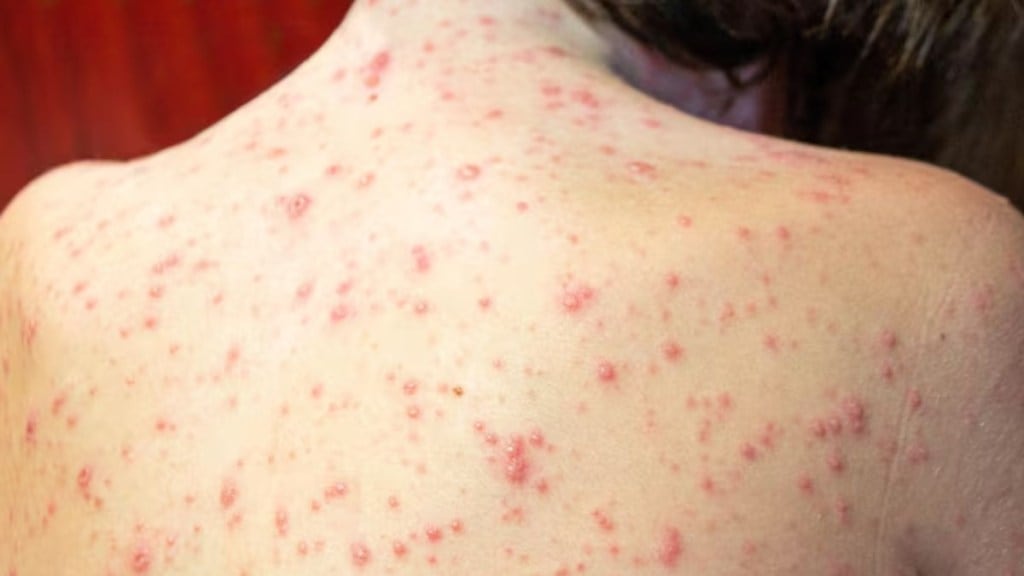Kerala is on high alert as chickenpox cases are rising quickly in Kollam district. In just the past week, health authorities have confirmed more than 100 cases, and the number seems to be growing. This sudden increase has made officials take immediate action to prevent the virus from spreading further. Doctors and health experts are urging people to stay careful, especially children, the elderly, and pregnant women, who are more likely to get seriously sick. But why is Kollam most vulnerable to chickenpox?
Why is Kollam vulnerable?
The varicella-zoster virus, which causes chickenpox, spreads easily through coughing, sneezing, or direct contact with an infected person. Kollam’s humid post-monsoon climate creates ideal conditions for the virus to multiply and spread. While the initial outbreak affected mostly children, doctors report that adults are now increasingly at risk, as per The New Indian Express.
Symptoms and stages of Chickenpox
According to the Mayo Clinic, chickenpox typically develops in three stages:
1. Incubation Stage (10–21 days): After exposure, the virus remains dormant. Those infected usually show no symptoms during this period.
2. Prodromal Stage (1–2 days): Early symptoms include fever, fatigue, headache, loss of appetite, and body aches. This is when the virus begins to spread to others.
3. Rash Stage (5–10 days): Red, itchy spots appear first on the face and chest, eventually spreading to the entire body. The spots develop into fluid-filled blisters that scab over in a few days. Severe itching, discomfort, and mild fever are common during this stage.
As per the Cleveland Clinic, complications, though rare, can include pneumonia, encephalitis (brain inflammation), and bacterial infections of the skin. Vulnerable groups like infants, pregnant women, the elderly, and people with weakened immune systems are at higher risk of severe illness.
Vaccination and preventive measures
Health authorities explain that vaccination is the most effective way to prevent chickenpox. While the chickenpox vaccine is not part of Kerala’s routine immunization program, it is available at most private hospitals. Vaccination not only reduces the severity of the illness but also lowers the risk of serious complications.
Other preventive measures include:
Other preventive measures are just as important as vaccination. According to the Mayo Clinic, people who are infected should be kept away from schools, offices, and public places until all blisters have completely scabbed over to prevent spreading the virus. Maintaining good hygiene can also help. Regular handwashing, not sharing personal items like towels or utensils, and cleaning commonly touched surfaces can reduce transmission.
Parents should carefully watch for early signs of chickenpox in children, such as fever, rashes, or fatigue, and seek medical advice promptly. Vulnerable groups, including pregnant women and people with weakened immune systems, should avoid contact with anyone infected, as early medical consultation can help prevent serious complications.
Kollam on alert!
The Kollam health department has sent surveillance teams to monitor the spread and is asking schools to follow strict hygiene rules. Officials warn that the next two weeks are crucial to contain the outbreak. Chickenpox may seem mild in children, but it can be dangerous for vulnerable people. Vaccination, good hygiene, and timely medical care are the only ways to stay safe.

